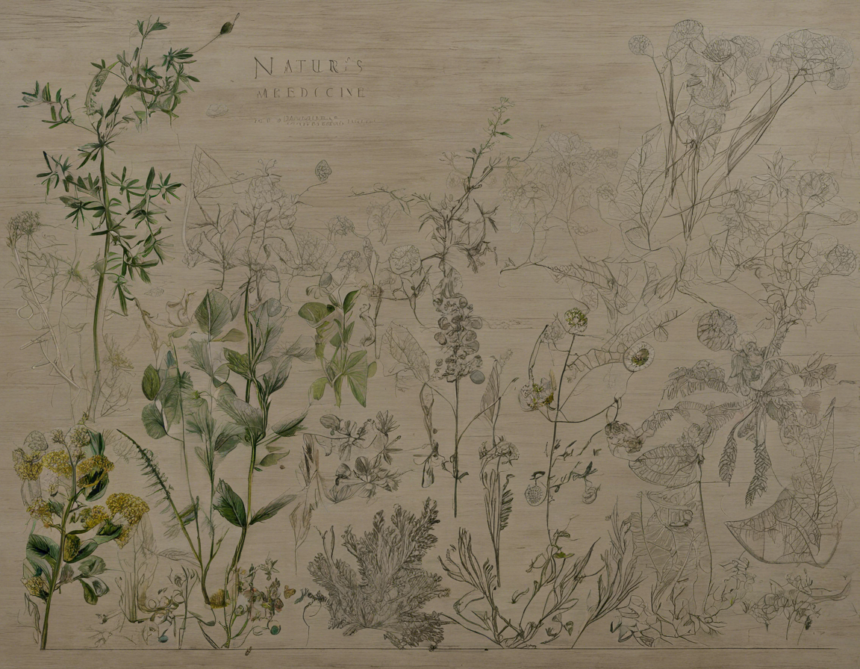Introduction
Nature has long been known for its healing properties, with plants and herbs offering a plethora of medicinal benefits. In Uxbridge, a town rich in biodiversity and natural beauty, there is an abundance of medicinal plants that have been used for centuries to treat various ailments and promote well-being. This guide explores the healing powers of the flora found in Uxbridge and how they can be effectively utilized for medicinal purposes.
Understanding Medicinal Plants
Medicinal plants are natural remedies derived from roots, leaves, seeds, flowers, or bark that have been traditionally used for their therapeutic properties. These plants contain compounds that have pharmacological effects on the body, helping to alleviate symptoms and promote health and wellness. In Uxbridge, the following medicinal plants can be found:
1. Echinacea (Echinacea purpurea)
Echinacea is a popular herb known for its immune-boosting properties. It is often used to prevent and treat colds and flu due to its anti-inflammatory and antiviral effects. Echinacea can be made into a tea or tincture to support the immune system.
2. Stinging Nettle (Urtica dioica)
Stinging nettle is a versatile plant with anti-inflammatory and diuretic properties. It is commonly used to alleviate allergies, arthritis, and urinary issues. Nettle can be consumed as a tea, infusion, or incorporated into meals.
3. Lemon Balm (Melissa officinalis)
Lemon balm is a calming herb known for its sedative and antispasmodic effects. It is often used to reduce anxiety, promote sleep, and improve digestion. Lemon balm tea is a popular way to enjoy its benefits.
4. Calendula (Calendula officinalis)
Calendula, also known as marigold, has anti-inflammatory and antiseptic properties, making it ideal for skin conditions such as cuts, bruises, and rashes. Calendula oil or salve can be applied topically for healing purposes.
5. Yarrow (Achillea millefolium)
Yarrow is a versatile herb with astringent and styptic properties, making it useful for treating wounds, cuts, and bleeding. Yarrow can be made into a poultice or infused oil for topical application.
Harvesting and Preparing Medicinal Plants
When harvesting medicinal plants, it is essential to do so responsibly to ensure sustainability and preservation of the ecosystem. Here are some tips for ethically harvesting and preparing medicinal plants in Uxbridge:
-
Identify the plant: Before harvesting any plant, ensure that you can correctly identify it to avoid misidentification and potential harm.
-
Harvest mindfully: Only take what you need, leaving enough plants for regrowth and wildlife.
-
Choose the right time: Harvest plants at the optimal time, typically in the morning after the dew has evaporated.
-
Dry herbs properly: To preserve the medicinal properties of the plants, dry them thoroughly before storage.
-
Store correctly: Keep dried herbs in airtight containers away from sunlight and moisture to maintain their potency.
Uxbridge’s Medicinal Plant Walking Tour
Embark on a medicinal plant walking tour in Uxbridge to explore the diverse flora and learn about their medicinal properties. A guided tour can provide in-depth knowledge about the plants, how to identify them, and their traditional uses. Immerse yourself in nature and discover the healing wonders that Uxbridge has to offer.
FAQs (Frequently Asked Questions)
- Are all plants in Uxbridge safe for medicinal use?
-
Not all plants in Uxbridge are safe for medicinal use. It is crucial to accurately identify plants and research their potential benefits and risks before usage.
-
Can I cultivate medicinal plants in my garden in Uxbridge?
-
Yes, many medicinal plants can be grown in gardens in Uxbridge. Be sure to choose plants that are suitable for the local climate and soil conditions.
-
How can I learn more about the medicinal plants in Uxbridge?
-
Participating in guided plant walks, workshops, and herbalism classes can provide valuable knowledge about the medicinal plants in Uxbridge.
-
Are there any regulations for harvesting medicinal plants in Uxbridge?
-
It is essential to check local regulations and guidelines regarding the harvesting of plants in Uxbridge to ensure compliance and sustainability.
-
Can medicinal plants interact with medications?
- Yes, medicinal plants can interact with medications. Consult with a healthcare provider or herbalist before using medicinal plants, especially if you are taking prescription medications.
In conclusion, Uxbridge’s medicinal plants offer a treasure trove of healing benefits for those seeking natural remedies and wellness. By understanding the properties of these plants, ethically harvesting them, and exploring their traditional uses, individuals can tap into the healing power of nature right in their backyard. Immerse yourself in the world of medicinal plants in Uxbridge and experience the holistic benefits they have to offer.


Leave a Reply